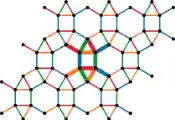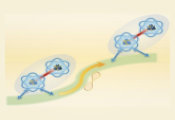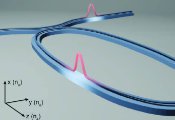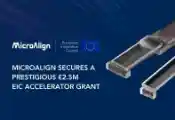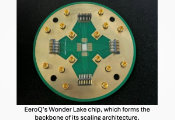Classiq Collaborates With BMW Group and NVIDIA to Drive Quantum Computing Applicability in Electrical Systems Engineerin
TELAVIV, ISRAEL, June 20, 2024 – Classiq today announced a collaboration with NVIDIA and the BMW Group to optimize mechatronic systems, marking a significant advance in the sophistication of quantum computing implementation in the automotive sector.
The initiative is focused on solving a complex computational challenge to find the optimal architecture of electrical and mechanical systems. This problem involves defining the optimal combination of components, from electrical engines and batteries to coolers, and how these should be connected. The goal of this project is to enhance efficiency and reduce energy waste, which can result – among other things – in the increased efficiency of electric vehicles.
Classiq’s sophisticated approach demonstrated how cutting-edge quantum algorithms may be used to address the problem, including the Quantum Approximate Optimization Algorithm(QAOA) and the Harrow-Hassidim-Lloyd (HHL) algorithm. The latter of these approaches leverages amplitude and digital encoding to efficiently solve and convert complex linear equations, utilizing a novel Quantum Analog to Digital Conversion (QADC) process.
The project resulted in the BMW Group’s quantum experts creating a highly sophisticated quantum program, with many quantum sub-routines, among the most complex quantum programs implemented to date. The implementation was enabled by the advanced modeling and compilation capabilities of the Classiq platform. The large and complex quantum circuit implementation was simulated using NVIDIA GPUs and the powerful NVIDIA CUDA-Q platform.
“Our collaboration with Classiq and NVIDIA has enabled an innovative quantum implementation that pushes the boundaries of what is possible in the application to automotive technologies,” said Lukas Mueller, Lead Future Compute at BMW Group IT. “NVIDIA’s quantum stack has been instrumental in simulating this complex algorithm, facilitating its detailed testing and refinement.”
“This project exemplifies the power of collaboration in the quantum computing sphere. By bringing together the best of quantum hardware, software and automotive domain expertise, we have achieved groundbreaking advancements in a remarkably short time,” said Nir Minerbi, CEO of Classiq Technologies.
“Quantum computing, which has the potential to transform society, will require accelerated computing with extreme performance for users to take full advantage of its value,” said Tim Costa, director of HPC and quantum computing at NVIDIA. “NVIDIA’s collaboration with innovators such as the BMW Group and Classiq is pushing the boundaries of quantum simulation and helping to usher in an era of useful quantum computing.”
Quantum computing is still a nascent technology, and further effort is required to bring the developed solution to industrial applicability. Classiq and its collaborators continue to develop the interface between automotive technology and quantum computing by expanding the boundaries of quantum design, implementation, and computation.



